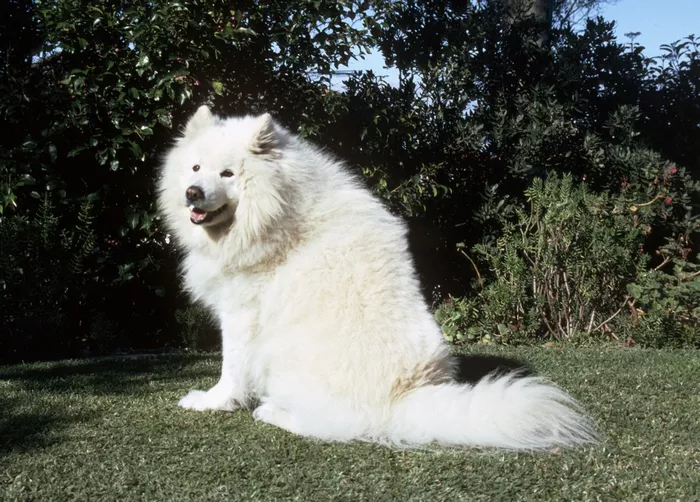As a pet owner, you want to provide your Japanese Spitz with a healthy and balanced diet. Feeding your dog a diet that is appropriate for their breed and age can help ensure that they maintain a healthy weight and have the energy and nutrients they need to thrive. In this article, we will explore what Japanese Spitz like to eat and provide tips for feeding your dog a healthy and balanced diet.
What is a Japanese Spitz?
The Japanese Spitz is a small to medium-sized dog breed that originated in Japan. They are known for their white, fluffy coat and friendly, playful personality. Japanese Spitz are intelligent and active dogs that require regular exercise and mental stimulation.
Like all dogs, Japanese Spitz have specific nutritional needs that must be met in order to maintain their health and well-being. Feeding your dog a diet that is appropriate for their breed, age, and activity level can help ensure that they receive the nutrients they need to thrive.
What Do Japanese Spitz Like to Eat?
Japanese Spitz, like all dogs, have individual preferences when it comes to food. Some dogs may be picky eaters, while others will eat anything you put in front of them. However, there are some general guidelines that can help you determine what Japanese Spitz like to eat.
High-Quality Protein
Protein is an essential nutrient for dogs, as it helps support muscle growth and repair. Japanese Spitz require a diet that is high in quality protein, such as chicken, turkey, beef, or fish.
When choosing a dog food for your Japanese Spitz, look for one that lists a high-quality protein source as the first ingredient. Avoid dog foods that contain fillers or by-products, as these may not provide the necessary nutrients your dog needs.
Complex Carbohydrates
Carbohydrates are an important source of energy for dogs. However, not all carbohydrates are created equal. Japanese Spitz require complex carbohydrates, such as brown rice, sweet potatoes, or quinoa, that provide sustained energy and are easy to digest.
Avoid dog foods that contain simple carbohydrates, such as corn or wheat, as these can cause spikes in blood sugar and may contribute to obesity and other health issues.
Fruits and Vegetables
Fruits and vegetables are a great source of vitamins, minerals, and fiber for dogs. Japanese Spitz can benefit from a diet that includes a variety of fruits and vegetables, such as carrots, spinach, blueberries, or pumpkin.
When feeding fruits and vegetables to your Japanese Spitz, make sure to cut them into small, bite-sized pieces that are easy for your dog to chew and digest. Avoid feeding your dog fruits or vegetables that are toxic to dogs, such as grapes or onions.
Healthy Fats
Fat is an important nutrient for dogs, as it helps support healthy skin and coat, as well as brain function. Japanese Spitz require a diet that is low in saturated fat but high in healthy fats, such as omega-3 fatty acids.
When choosing a dog food for your Japanese Spitz, look for one that contains a high-quality source of healthy fats, such as salmon or flaxseed oil. Avoid dog foods that contain unhealthy fats, such as animal fat or vegetable oil.
Water
Water is essential for all dogs, including Japanese Spitz. Make sure that your dog has access to clean, fresh water at all times, and encourage them to drink regularly throughout the day.
Tips for Feeding Your Japanese Spitz
Feeding your Japanese Spitz a healthy and balanced diet is important for their health and well-being. Here are some tips for feeding your dog:
Choose a High-Quality Dog Food
When choosing a dog food for your Japanese Spitz, look for one that is high in quality protein, complex carbohydrates, and healthy fats. Avoid dog foods that contain fillers or by-products, as these may not provide the necessary nutrients your dog needs.
Feed in Moderation
Feeding your Japanese Spitz in moderation is important for maintaining a healthy weight and preventing obesity. Follow the recommended feeding guidelines on the dog food package, and adjust the amount of food you feed your dog based on their age, weight, and activity level.
Avoid Table Scraps
Feeding your Japanese Spitz table scraps can be tempting, but it’s important to avoid doing so. Human food may not provide the necessary nutrients your dog needs and can contribute to obesity and other health issues.
Provide Plenty of Water
Make sure that your Japanese Spitz has access to clean, fresh water at all times, and encourage them to drink regularly throughout the day. This is especially important during hot weather or after exercise.
Consider Supplements
If you are concerned that your Japanese Spitz is not getting all the necessary nutrients from their diet, you may want to consider adding supplements to their food. Talk to your veterinarian about which supplements may be appropriate for your dog.
Conclusion
Feeding your Japanese Spitz a healthy and balanced diet is important for their health and well-being. Japanese Spitz require a diet that is high in quality protein, complex carbohydrates, healthy fats, and fruits and vegetables. When choosing a dog food for your Japanese Spitz, look for one that meets these requirements and avoid dog foods that contain fillers or by-products. Feeding your dog in moderation and providing plenty of water can also help maintain their health and prevent obesity. If you have any concerns about feeding your Japanese Spitz, consult with your veterinarian.


